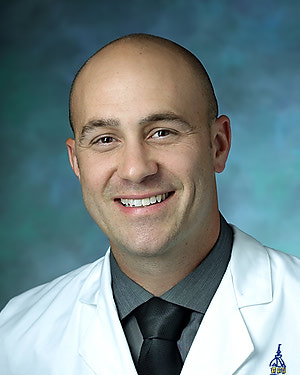Research Lab Results
-
Allan Gottschalk Lab
Research in the Allan Gottschalk Lab focuses on the mechanisms behind neuropathic pain, chronic pain related to nerve injury. We are investigating biophysical models of the impact of general anesthesia on the central nervous system; informational aspects of sensory perception and the representation of sensory input; nonlinear dynamics of respiratory pattern generation; and acute perioperative pain.
Principal Investigator
Department
-
John Sampson Lab
Researchers in the John Sampson Lab investigate relevant, appropriate, affordable and sustainable ways to improve anesthesia and perioperative care in low-resource settings. The team’s research interests include the Universal Anesthesia Machine; interpersonal relationships between anesthesia providers and their patients; how the quality of those relationships impacts professionalism, autonomy, anxiety, patient cooperation and patient satisfaction; how disease influences cerebrovascular reactivity as measured by MRI; and how education and communication can improve medical care in Africa and other austere environments. The team is currently working with clinicians in Ghana, Ethiopia and Kenya. -
Jennifer Lee-Summers Lab
Research in the Jennifer Lee-Summers Lab explores cerebrovascular autoregulation, particularly during anesthesia. Our previous studies have examined cerebrovascular autoregulation and blood flow in patients with hypothermia, in neonatal patients with hypoxic-ischemic encephalopathy and in pediatric patients with moyamoya disease.
Principal Investigator
Department
-
Joanne Shay Lab
The Joanne Shay Lab primarily conducts research on pediatric pain management techniques. Our studies have explored pain management in special-needs children and patients, and we have studied non-traditional pain management methods, such as regional anesthesia and peripheral nerve blocks in children, medical acupuncture, and remote anesthesia services. We also have an ongoing interest in the business of medicine. -
C. David Mintz Lab
Researchers in the C. David Mintz Lab seek to better understand the specific methods by which anesthesia can impair a patient’s brain development. Recent studies have investigated the ways in which anesthetics interfere with axon guidance in developing mouse neocortical neurons via a GABAA receptor mechanism, as well as the method by which anesthetics interfere with the polarization of developing cortical neurons.
Principal Investigator
Department
-
Nicholas Dalesio Lab
Research in the Nicholas Dalesio Lab is currently examining pre-surgical predictors of post-surgical respiratory complications in children with obstructive sleep apnea and sleep-disordered breathing; the impact of anesthesia and pharmacological agents on upper airway physiology; and techniques for pediatric airway imaging.
-
Frederick Sieber Lab
The Frederick Sieber Lab studies the impact of sedation on geriatric surgical patients—especially those undergoing orthopaedic or pelvic procedures—with the goal of preventing postoperative delirium. We are using electroencephalography to investigate the effect of sedation depth during spinal anesthesia. We are also working to determine the effects of using propofol for sedation in elderly patients as well as the effects of robotics and surgical positioning on cerebral blood flow. -
Marie Hanna Lab
The Marie Hanna Lab conducts research on key topics within the field of anesthesiology. Our interests include both regional and obstetric anesthesia as well as patient-controlled analgesia, pain measurement, post-operative pain and acute pain management. Examples of our work include researching whether a surgery patient’s perception of pain control affects his or her satisfaction level and a comparison of air and liquid for use in the loss-of-resistance technique during labor epidurals.
-
Michael A. Rosen Lab
Research in the Michael A. Rosen Lab primarily focuses on patient safety and simulation-based health care training and technology. Recent work provided examples of how human factors experts can collaborate with health care professionals and simulationists (experts in the design and implementation of simulation) to use contemporary simulation to improve health care delivery. Another recent study examined the anesthesia practice at two tertiary care hospitals in Sierra Leone, West Africa, where anesthesia is associated with high mortality rates. We identified gaps in the application of internationally recommended anesthesia practices at both hospitals, likely caused by lack of available resources.
-
Deborah Schwengel Lab
Research in the Deborah Schwengel Lab focuses on perioperative care of pediatric patients with obstructive sleep apnea as well as anesthetic care for patients undergoing ethanol embolization of vascular malformations. Our team also explores topics within graduate medical education. In this field, our work has involved evaluating both an educational curriculum and a disaster preparedness curriculum for anesthesiology residents. We also have a long-standing interest in international adoption medicine.
Principal Investigator
Department

